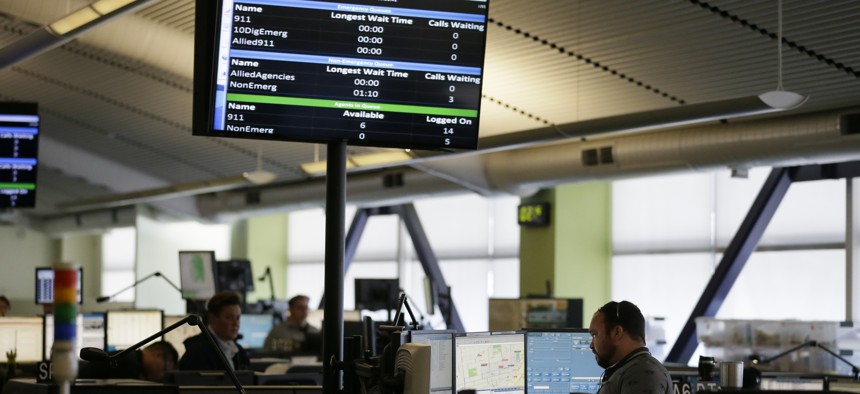Facebook Expands Tool That Lets Local Governments Send Alerts

In this photo taken Aug. 2, 2019, is the 9-1-1 call center at the San Francisco Department of Emergency Management in San Francisco. AP Photo/Eric Risberg

Connecting state and local government leaders
The system will offer authorities a way to send targeted notifications about emergencies and other issues to residents.
In the event of a flash flood, active shooter or major road closure, local governments have a new way to get information about emergency situations to residents.
Facebook announced Tuesday the expansion of a tool that will allow governments to craft local alerts which “greatly amplify” their reach on the social media platform.
More than 350 local governments have used local alerts as part of a pilot program Facebook launched in November to disseminate information about everything from flash flood warnings to bomb threats to missing persons reports.
Facebook plans to make the local alert tool available to all eligible Facebook pages in the United States by the end of the year.
“When authorities mark posts as local alerts, we greatly amplify their reach so that people living in an affected community are much more likely to see them,” Anthea Watson Strong, a Facebook product manager, wrote in a blog post announcing the expansion of the initiative. “We send notifications to people living in the affected area, and we also show that information on Today In, a new place on Facebook for local news, community information, and conversations between neighbors.”
If residents do not follow a specific agency on Facebook, they can also find emergency alerts by checking the social media company’s “Today In” page, which aggregates local news and community information.
Watson Strong cited the experience of several local governments who had used the alerts to disseminate information. The Mt. Juliet Police Department in Tennessee used the alert system to post information about a 64-year-old man who had gone missing. Tangipahoa Parish, in Louisiana, used local alerts to update residents in July about wind, rainfall, and river levels related to Hurricane Barry.
The company’s expansion of emergency alerts comes as more technology companies are experimenting with public safety features.
Throughout the testing phase, Facebook has received feedback from local governments to improve the alert system, including by allowing governments to categorize the type of alert. As a result, Facebook said governments can also more specifically target the alerts to affected counties, cities, towns or even neighborhoods.
“This helps us ensure that local authorities reach only the people they need to reach during these urgent situations,” Watson Strong wrote.
She added that Facebook surveyed about 2,000 people who had seen posts marked as local alerts. The company found that 73% reported the posts provided information they hadn't yet seen elsewhere, 43% said they took an action as a result of the information they saw, and 80% reported that posts were at least “somewhat valuable.”
Facebook already allows individual users to mark themselves “safe” during a natural disaster that occurs in their vicinity.
Andrea Noble is a staff correspondent with Route Fifty.

NEXT STORY: Wyoming Is Using Medicaid to Treat Air Ambulances Like a Public Utility




